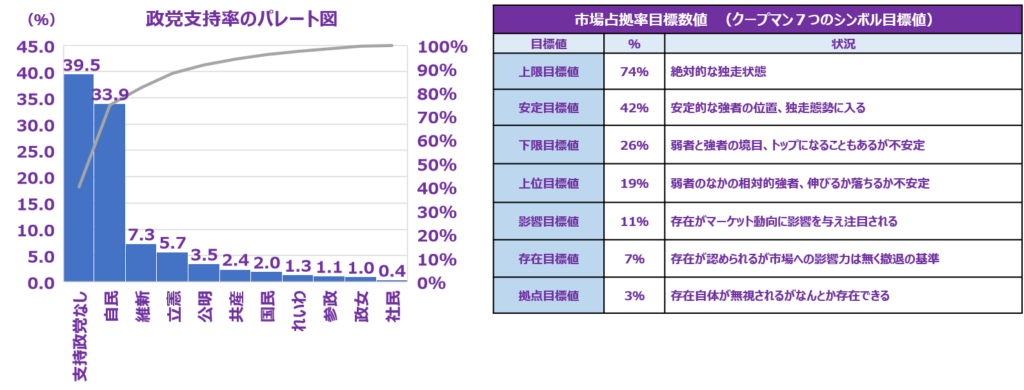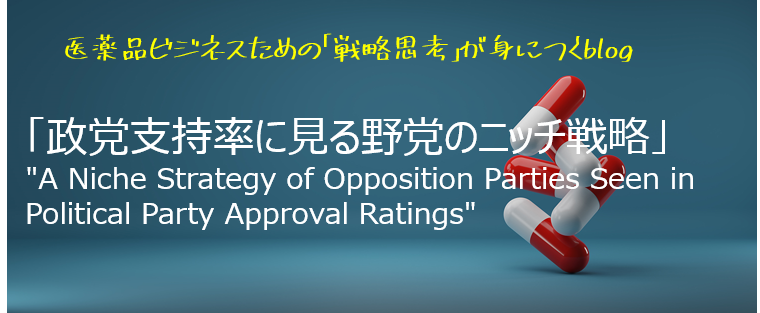
統一地方選の投票結果が発表となりましたが、政党支持率を題材にしてマーケットシェア理論を語りたいと思います。
10の政党と支持政党なしの合計11の支持率をパレート図にしてみました。
一見してお分かりのように自民党の一強型競争市場を形成しています。
マーケットシェア理論では自民党を除くその他の政党は全て射程距離圏外の弱者であり、もはや自民党には追いつけない、諦めるといたシェア値になっています。
特記したいのが自民党と支持政党なしの合計です。
こちらが73.4%と、クープマンモデルにおける上限目標値と見事に符号しています。
これはシェア理論における最も安定した市場の値であり、既に勝負ありと言えます。
これらのことから、野党が与党になる可能性は限りなくゼロであり、また維新、立憲、公明を除く政党は拠点目標値を下回る、その存在自体が無視される位置付けです。
しかし与党になる可能性がゼロであっても存在意義がないわけではありません。
少なくともコアな支持層が存在するため政党として存続することは十分可能です。
つまり政党として存続し、議員を続ける上では与党になるならないは全く問題ではありません。
マーケットシェア理論における市場細分化によるニッチ戦略と言えます。
*本投稿は政党支持率を用いてマーケットシェア理論を説明するものであり特定の政党を支持するものではありません
“A Niche Strategy of Opposition Parties Seen in Political Party Approval Ratings”
The results of the unified local elections have been announced, and I would like to discuss market share theory using political party approval ratings as a topic.
I have created a Pareto chart of the support rates for 10 political parties and the total for those who support no party.
As you can see at a glance, the Liberal Democratic Party (LDP)has formed a monopolistic competition market.
In market share theory, except for the LDP, all other parties are weak players outside the range of influence and have already resigned to a share value that cannot catch up with the LDP.
What I want to note is the total of the LDP and those who support no party.
This is 73.4%, which is perfectly in line with the upper target value in the koopman’s model.
This is the most stable market value in share theory, and it can be said that the game is already won.
From these facts, the possibility of opposition parties becoming the ruling party is almost zero, and except for Ishin, Rikken, and Komeito, other parties are in a position where their existence is ignored as they fall below their target values.
However, even if the possibility of becoming the ruling party is zero, it does not mean that there is no reason for existence.
At least it has enough core supporters to survive as a political party.
In other words, it does not matter whether or not a party becomes the ruling party in order to survive as a political party and continue to serve as a member of parliament.
It can be said to be a niche strategy based on market segmentation in market share theory.
*This post uses political party approval ratings to explain market share theory and does not support any specific political party.

